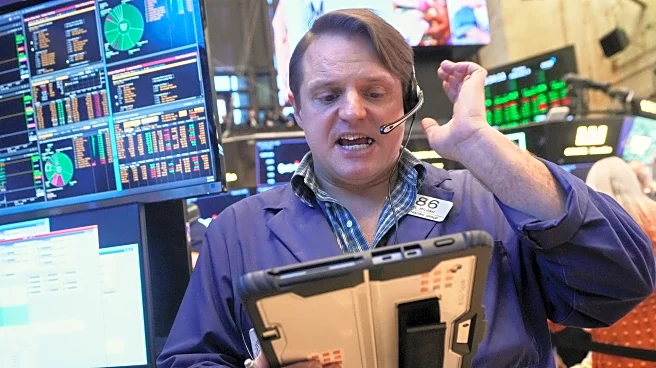What's Happening?
Manufacturing companies are experiencing persistent inflation pressures due to tariffs imposed by the Trump administration, including Section 232 tariffs. These tariffs have led to increased costs for
industrial distributors like MSC Industrial Direct and W.W. Grainger, who have implemented multiple rounds of price increases. Regal Rexnord, for example, has seen its estimated 2025 tariff impact escalate from $60 million in March to $175 million by October. Initially, companies stockpiled inventory to avoid tariff costs, but as supplies deplete and margins shrink, they are forced to pass costs onto customers.
Why It's Important?
The ongoing tariff-related cost increases are significant for the U.S. manufacturing sector, impacting supply chains and automation technologies. As companies pass these costs to consumers, it could lead to higher prices for industrial goods and services, affecting competitiveness and profitability. The situation underscores the broader economic implications of trade policies and tariffs, highlighting the challenges faced by manufacturers in managing costs and maintaining market positions. The compounding effect of tariffs on costs may also influence future business strategies and investment decisions in the sector.
What's Next?
Manufacturers and distributors are likely to continue adjusting their pricing strategies in response to tariff pressures, potentially leading to further price increases. Companies may explore alternative sourcing options or negotiate tariff relief to mitigate cost impacts. The situation may prompt discussions among industry stakeholders and policymakers regarding the long-term effects of tariffs on the manufacturing sector and potential policy adjustments.
Beyond the Headlines
The tariff situation raises questions about the ethical and economic implications of trade policies, particularly in terms of their impact on domestic industries and global competitiveness. It also highlights the need for strategic planning and adaptation by manufacturers to navigate complex trade environments and maintain operational efficiency.











